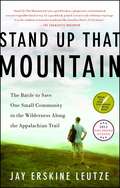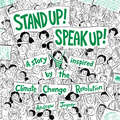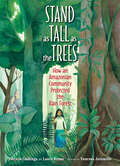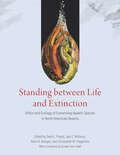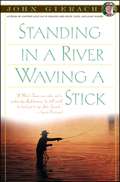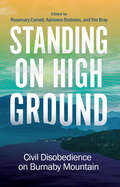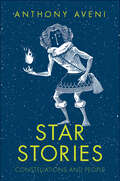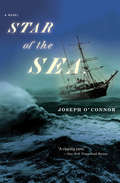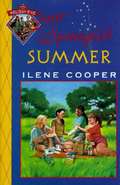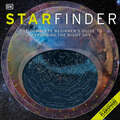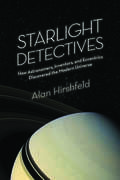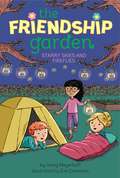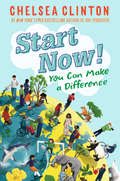- Table View
- List View
Stand Up That Mountain
by Jay Erskine LeutzeIn the tradition of A Civil Ac tion--the true story of a North Carolina outdoorsman who teams up with his Appalachian "mountain people" neighbors to save treasured land from being destroyed Living alone in his wooded mountain retreat, Jay Leutze gets a call from a whip-smart fourteen-year-old, Ashley Cook, and her aunt, Ollie Cox, who say a mining company is intent on tearing down Belview Mountain, the towering peak above their house. Ashley and her family, who live in a little spot known locally as Dog Town, are "mountain people," with a way of life and speech unique to their home high in the Appalachians. They suspect the mining company is violating the law, and they want Jay, a nonpracticing attorney, to stop the destruction of the mountain. Jay, a devoted naturalist and fisherman, quickly decides to join their cause. So begins the epic quest of the "Dog Town Bunch," a battle that involves fiery public hearings, clandestine surveillance of the mine operator's activities, ferocious pressure on public officials, and high-stakes legal brinksmanship in the North Carolina court system. Jay helps assemble a talented group of environmental lawyers to do battle with the well-funded attorneys protecting the mining company's plan to dynamite Belview Mountain, which happens to sit next to the famous Appalachian Trail, the 2,184-mile national park that stretches from Maine to Georgia. As the mining company continues to level the forest and erect a gigantic rock-crushing plant on the site, Jay's group searches frantically for a way to stop an act of environmental desecration that will destroy a fragile wild place and mar the Appalachian Trail forever. Much more than the record of a legal battle, Stand Up That Mountain takes the reader to a remote corner of Appalachia, a region often stereotyped and little understood, even now in the twenty-first century. A naturally elegant writer, Jay Leutze delivers a powerful, beautifully written story full of remarkable characters, such as "Wingfoot," an elusive protector of the Appalachian Trail; a stubborn mining company engineer intent on pulling down the mountain in the face of intense opposition; and Ron Howell, a retired and legendary North Carolina Superior Court judge known as the "Heel Hound" for his relentless pursuit of legal victory. Jay's plaintiff group is eventually joined by several national conservation groups who see that Belview Mountain and the Appalachian Trail must be protected for future generations of Americans. A great contemporary story that demonstrates what is possible when local people set their minds to righting a local wrong, Stand Up That Mountain will appeal to conservationists, hikers, attorneys, and readers fascinated by Appalachia and rural life, and anyone interested in a compelling story both well told and true.
Stand Up! Speak Up!: A Story Inspired by the Climate Change Revolution
by Andrew JoynerAwarded as a 2021 Malka Penn Award Honor Book, here is a timely picture book about a young girl's mission to inspire others to help the planet. The meaningful message of climate change activism is perfect for Earth Day and every day! Celebrate young climate change activists in this charming story about an empowered girl who shows up, listens up, and ultimately, speaks up to inspire her community to take action against climate change. After attending a climate march, a young activist is motivated to make an effort and do her part to help the planet... by organizing volunteers to work to make green changes in their community, from cleaning a lake, to planting trees, to making composting bins, to hosting a clothing swap and more! Here is an uplifting picture book that is an important reminder that no change is too small--and no person is too young--to make a difference.With simple text and lively illustrations, Andrew Joyner has given young children a timely story about activism, community, and hope.
Stand as Tall as the Trees: How an Amazonian Community Protected the Rain Forest
by Laura Resau Patricia GualingaAn inspiring true story about how an activist in the Amazon worked with other Indigenous communities to protect and preserve their sacred lands and forests.Patricia (Paty) Gualinga grew up in her Kichwa village in the Amazon of Ecuador where mystical beings called Amazanga help protect the forest. Paty traveled away from home for school until she was called back—companies that said the government sold them property were destroying her people&’s lands to look for oil. The Kichwa community worked with other Indigenous groups to bring the Ecuadorian government to the Court of Human Rights.Lyrically told and beautifully illustrated, this moving story will remind readers of the importance of nature conservation, perseverance, and standing up for your community.&“A gorgeously told true story, full of lyricism, wonder, beautiful artwork, and most importantly, HOPE. Stand as Tall as the Trees makes my heart swell every time I read it. We need more stories like this—in life and in our libraries.&” —Todd Mitchell, Green Earth Book Award Honor Winner and Author of The Namer of Spirits&“This moving and inspirational story of Patricia Gualinga's fight for her community's Amazon rainforest is an urgent call to action to protect the wilderness, which, in the poignant words of the authors, keeps us all alive. Stand as Tall as the Trees is an ode to the power of ordinary people to affect change. Lovingly written and illustrated, it is a book that will inspire a new generation of activists.&”—Lea Aschkenas, bilingual librarian and author of Arletis, Abuelo, and the Message in a Bottle &“This picture book will capture your heart and imagination alike.&”– Alda P. Dobbs, Winner of the Pura Belpré Honor Award and Author of The Other Side of the River&“This gorgeous book will surely delight youngsters, but it will be on my syllabus for graduate students studying Nature Writing as well. After all, books for younger readers influence our cultural conversation about the environment. Who doesn&’t remember their favorite nature-based picture book? I think we all do, because they were seared into our brains at a powerful moment. This book deserves to be one of those memorable classics, worth studying for its important story, delightful art, inclusion, and environmental ethic.&”—Laura Pritchett, PhD, Director of the MFA in Nature Writing at Western Colorado University and PEN USA Award Winning Author"A true story full of wisdom and hope, this book's stunning beauty ranges from the gorgeous illustrations to the powerful messages of bravery, strength, and perseverance. Stand as Tall as the Trees is a poetic and soulful gem that offers inspiration for readers of all ages."— Bailey Cates, NYT bestselling author
Stand into Danger (Richard Bolitho #2)
by Alexander KentRichard Bolitho, popular hero of a dozen swashbuckling sagas about His Majesty's Navy in the age of sail, swings into roaring action in this new novel by Britain's greatest writer of eighteenth-century naval fiction. Appointed a third lieutenant in the Royal Navy in 1774 at the age of eighteen, Bolitho joins HMS Destiny at Plymouth. Though he comes to appreciate his promotion at a time when most of the fleet is laid up, his good fortune is clouded by personal tragedy, and he is warned by his captain that the young lieutenant's loyalty is to him, the ship, and His Britannic Majesty--in that order. Dispatched on a secret mission far south to Rio, then to the Caribbean, Destiny and her crew confront the hazards of conspiracy, treason, and piracy-and Bolitho faces the loss of his first love. But the grim realities of life under sail on a man-of-war, the thunder and smoke of sea battles and bloody hand-to-hand skirmishes begin to mold the young lieutenant into the very model of a Royal Navy officer.
Standing Operating Procedures for Developing Acute Exposure Guideline Levels for Hazardous Chemicals
by Subcommittee on Acute Exposure Guideline LevelsStanding Operating Procedures for Developing Acute Exposure Guideline Levels for Hazardous Chemicals contains a detailed and comprehensive methodology for developing acute exposure guideline levels (AEGLs) for toxic substances from inhalation exposures. The book provides guidance on what documents and databases to use, toxicity endpoints that need to be evaluated, dosimetry corrections from animal to human exposures, selection of appropriate uncertainty factors to address the variability between animals and humans and within the human population, selection of modifying factors to address data deficiencies, time scaling, and quantitative cancer risk assessment. It also contains an example of a summary of a technical support document and an example of AEGL derivation. This book will be useful to persons in the derivation of levels from other exposure routes—both oral and dermal—as well as risk assessors in the government, academe, and private industry.
Standing between Life and Extinction: Ethics and Ecology of Conserving Aquatic Species in North American Deserts
by Jack Williams David Propst Kevin Bestgen Christopher HoagstromNorth American deserts—lands of little water—have long been home to a surprising diversity of aquatic life, from fish to insects and mollusks. With European settlement, however, water extraction, resource exploitation, and invasive species set many of these native aquatic species on downward spirals. In this book, conservationists dedicated to these creatures document the history of their work, the techniques and philosophies that inform it, and the challenges and opportunities of the future. A precursor to this book, Battle Against Extinction, laid out the scope of the problem and related conservation activities through the late 1980s. Since then, many nascent conservation programs have matured, and researchers have developed new technologies, improved and refined methods, and greatly expanded our knowledge of the myriad influences on the ecology and dynamics of these species. Standing between Life and Extinction brings the story up to date. While the future for some species is more secure than thirty years ago, others are less fortunate. Calling attention not only to iconic species like the razorback sucker, Gila trout, and Devils Hole pupfish, but also to other fishes and obscure and fascinating invertebrates inhabiting intermittent aquatic habitats, this book explores the scientific, social, and political challenges of preserving these aquatic species and their habitats amid an increasingly charged political discourse and in desert regions characterized by a growing human population and rapidly changing climate.
Standing in a River Waving a Stick (John Gierach's Fly-fishing Library)
by John GierachBrilliant, witty, perceptive essays about fly-fishing, the natural world, and life in general by the acknowledged master of fishing writers.With his inimitable combination of wit and wisdom, John Gierach once again celebrates the fly-fishing life in Standing in a River Waving a Stick and notes its benefits as a sport, philosophical pursuit, even therapy: “The solution to any problem—work, love, money, whatever—is to go fishing, and the worse the problem, the longer the trip should be.” After all, fly-fishing does teach important life lessons, says Gierach—about solitude, patience, perspective, humor, and the sublime coffee break. Recounting both memorable fishing spots and memorable fish, Gierach discusses what makes a good fly pattern, the ethics of writing about undiscovered trout waters, the dread of getting skunked, and the camaraderie of fellow fishermen who can end almost any conversation with “Well, it’s sort of like fishing, isn’t it?” Reflecting on a lifetime of lessons learned at the end of a fly rod, Gierach concludes, “The one inscription you don’t want carved on your tombstone is ‘The Poor Son of a Bitch Didn’t Fish Enough.’” Fortunately for Gierach fans, this is not likely to happen.
Standing on High Ground: Civil Disobedience on Burnaby Mountain
by Rosemary Cornell, Adrienne Drobnies and Tim BraySo what am I doing to address the climate crisis? How far will I go to defend the earth? What price am I willing to pay for climate justice? Since 2014, hundreds of people have been arrested while engaging in non-violent civil disobedience to protest the “TMX” Trans Mountain pipeline project. Standing on High Ground: Civil Disobedience on Burnaby Mountain includes twenty-five stories of people who put themselves on the line for climate justice. While some of those arrested were longtime activists, others felt compelled to act for the first time in their lives. Editors Rosemary Cornell, Adrienne Drobnies, and Tim Bray showcase the profiles of Indigenous leaders, academics, faith leaders, political leaders, engineers, artists and writers, scientists, physicians, and ordinary folk from diverse backgrounds and experiences. Their reflections on the protests and their arrests explore our moral duty to future generations, government’s collusion with corporate power, the violation of Indigenous Law, and unsustainable worldviews. Climate activists in protest movements such as the one against the TMX pipeline are critical in the existential fight for a sustainable future and habitable planet. They show us that we can all take a stand.
Star Eaters (Orca Anchor)
by Brooke CarterIn a far-off galaxy, entire worlds are dying. Their suns and other stars are being consumed by Star Eaters, members of an intergalactic corporation who use advanced technology to steal energy from planets to fuel a fleet of roving starships. But Destin, a young and newly minted Star Eater, is reluctant to destroy worlds he’s never even seen. When he finds a mysterious stowaway girl named Calla on his ship after his first solo mission, Destin is torn. He must decide between turning her in or helping her save her planet. Time is running out—he only has one day before the planet’s sun star dies forever, and only enough fuel to reach home or escape for good.
Star Lost (Star Bright #3)
by Patsey GrayOne whole week of camping on the mesa! Debbie Bell had never been so excited, even though the camping trip with her friend Maureen had a serious purpose. It was to test Deb’s efficiency in caring for a horse without help—something Deb’s mother had to be convinced of before she would even discuss Deb’s going to veterinary school. Deb didn’t have any doubts about handling Star Bright, her very own sorrel colt. For hadn’t she raised him herself? If she would just remember to be what her mother called “responsible,” and not get into any of those scrapes that seemed to attract her and Star. The great day arrived, and Deb and Maureen with their horses set off for the mesa high in the Santa Cruz Mountains. The weather was perfect and the campsite couldn’t have been better. After several glorious days Deb knew that Star would behave if she used a hobble at night instead of leaving him in the old corral with Maureen’s horse, Patches. Forgotten were Mr. Baily, the hired man’s, words, “Don’t use hobbles less I’m around. Your colt’s still too young to be trusted.” The next morning Star was gone, with Patches after him. What would her mother and Mr. Baily say! Both Maureen and Deb were frantic as they took off after the two horses, following a trail that led past the Bell ranch, past the highway, and into the woods, where coyotes and other predators waited. As one day went by and the two girls still had not found their horses Deb began to imagine Star injured, perhaps dead. She and Maureen plunged deeper into the forest, following the horses in a chase that was to have adventure and some narrow escapes before reaching a most unexpected conclusion.
Star Rise: Star Rise (Horses of the Dawn #2)
by Kathryn LaskyFrom the author of the New York Times–bestselling Guardians of Ga’hoole, a herd of horses surviving the wilds of the New World discovers an orphaned boy.For the filly Estrella, nothing is more precious than freedom. She was born at sea, aboard a ship of men sailing to the New World in search of gold. But Estrella and her herd escaped the conquerors and embarked on a journey across thousands of miles—braving harsh terrains and fierce predators—to a land where they can finally run wild.But now, an unforeseen danger threatens to destroy the pack. A boy with a special gift is lost in the wilderness, and only the horses can keep him alive. But to save the boy, the herd will risk galloping straight back into the hands—-and harnesses—of their captors.And so, it’s up to Estrella, the herd’s unlikely leader, to make a life-changing decision. Should the horses accept the orphan boy as one of their own? How do you choose between freedom and friendship?Praise for Horses of the Dawn:“As in works such as her Guardians of Ga’hoole series, Lasky uses animals to touch on very human issues.” —Kirkus Reviews“Lasky successfully fuses fantasy and fact as she gives her equine characters credible emotional depth and underscores the tensions and disparity between Old and New World sensibilities. It’s a haunting story of loss, self-discovery, survival, and homecoming.” —Publishers Weekly
Star Stories: Constellations and People
by Anthony Aveni“Skillfully guides us around the awesome night sky through the imagination of different peoples around the world, past and present. A wonderful treasury.” —Jacqueline Mitton, author of Zoo in the SkyMost of us can recall searching the clouds as children for recognizable shapes and pictures. Similarly, since the dawn of humankind, the night sky has been filled with countless points of light that beckon gazers to connect the dots.We can see love, betrayal, and friendship in the heavens, if we know where to look. A world expert on cultural understandings of cosmology, Anthony Aveni provides an unconventional atlas of the night sky, introducing tales beloved for generations. The constellations included are not only your typical Greek and Roman myths, but star patterns conceived by a host of cultures, non-Western and indigenous, ancient and contemporary.Follow an epic animal race, a quest for a disembodied hand, and an emu egg hunt in these constellation stories from diverse cultures. The sky has long served as a template for telling stories about the meaning of life. People have looked for likenesses between the domains of heaven and earth to help marry the unfamiliar above to the quotidian below. Perfect for all sky watchers and storytellers, this book is an essential complement to Western mythologies, showing how the confluence of the natural world and culture of heavenly observers can produce a variety of tales about the shapes in the sky.Praise for Anthony Aveni“A pioneering cultural astronomer.” —Publishers Weekly“He writes with a mastery and polish that is wonderfully accessible, akin to an engaging classroom lecture.” —The New York Times Book Review
Star Wolf: Star Wolf (Wolves of the Beyond #6)
by Kathryn LaskyThe latest in Kathryn Lasky's hit series - a stunning spin-off set among the wolves of Ga'hoole.A great cold has seized the Beyond. The warmth of summer, the smell of sweet grass and the great caribou migrations are distant memories. Now the wolves know only ice, dark, snow and endless cold. The order that kept the wolf clans strong for thousands of years has broken down completely. The wolves have only one chance for survival. They must find their way to a new land, a land of warmth and summer. But the journey will take them over a frozen sea and through thousands of miles of perilous territory. Will the wolves trust young Faolan to lead them?
Star of the Sea: A Novel
by Joseph O'ConnorA New York Times Notable Book and &“thoroughly gripping&” historical mystery: On a ship packed with Irish immigrants, one passenger is a killer (People). In the bitter winter of 1847, leaving an Ireland torn by famine and injustice, the Star of the Sea sets sail for New York. On board are hundreds of refugees, some of them optimistic, many more of them desperate. Among them are a maid with a devastating secret, the bankrupt Lord Merridith accompanied by his wife and children—and a killer stalking the decks, hungry for the vengeance that will bring absolution. This journey will see many lives end, while others begin anew. Passionate loves are tenderly recalled, shirked responsibilities regretted too late, and profound relationships shockingly revealed. In this spellbinding tale of tragedy and mercy, love and healing, the farther the ship sails toward the Promised Land, the more her passengers seem moored to a past that will never let them go. &“O&’Connor&’s luscious book brews the suspense of a thriller with the scope and passion of a Victorian novel—seasoned in authentic historical detail and served up in language that is equal parts lyrical and gritty.&” —Booklist &“Engrossing . . . will hold historical fiction fans rapt.&” —Publishers Weekly
Star-Spangled Summer: Five Holiday Friends
by Ilene Cooper"Lia, Maddy, Kathy, Jill, and Erin are the Holiday Five, close friends from summer camp who meet on holidays to keep the good times going...and to help each other out when times get bad. The Holiday Five can't wait to go back to their beloved Camp Wildwood for another summer. But are they going back? When the five girls have a picnic on Memorial Day to discuss the summer ahead, Erin is hiding a guilty secret: her family doesn't have the money to send her this year. Next, Kathy's father decides he wants to drag her along to Europe for a "family vacation" with a stepfamily she doesn't really like. Finally, Jill's coach tells her that she may have the opportunity to fulfill a dream by going to skating camp. But Jill wonders, is being a skater really more important to her than everything else in life? With all these issues, only Maddy and Lia seem sure to return to Wildwood. The girls say they'll still stay friends even without camp to hold them together, but they know they're probably kidding themselves. So the Holiday Five hold an emergency meeting. Together, they know, they're up to tackling any problem--but what if there are three problems? Are all their friendship and good intentions enough to keep them together when everything else is pulling them apart? Ages 8-12"
Starcrossed
by Julia DenosA resonant story of two friends trying to maintain their relationship from afar with dazzling results, filled with wishes, curiosity, and bravery. From award-winning author-illustrator Julia Denos.She was made of blood and bones, and he was made of space and stars. Back in a time when there were still students of the stars, there were two friends, Acamar and Eridani. Eridani was a star pupil studying the night skies, and Acamar . . . well, he was made of the stuff she studied. In a star-crossed twist of fate, these long-distance friends find they&’ve wished themselves into unexpected new worlds. Filled with stardust and moonglow, this cosmic adventure shows us how even the most brilliant wishes can have a mind of their own—and that true friendship can endure, despite time and space.
Starfinder: The Complete Beginner's Guide to Exploring the Night Sky
by DKNow with removable planisphere! Starfinder lays out the universe clearly, highlighting the signposts in the sky and explaining the cosmology of the stars. Discover the wonders of the night sky with up-to-date information about the universe, including monthly charts to both the northern and southern hemisphere, and a section on observing the Moon, planets, and other bodies of the solar system.
Starfish Sleepover: Book 11 (Sea Keepers #11)
by Coral RipleySurprise! You are invited to a mermaid sleepover party at the palace! A magical series about saving our oceans for readers aged 6+.The Sea Keepers are invited by Queen Adrianna to stay overnight at the palace for Princess Marina's surprise birthday party. Emily, Grace and Layla have never been to a mermaid sleepover, and are worried about what gift to bring. But when Effluvia crashes the party and threatens to spoil the surprise, Emily, Grace and Layla know that they need to give their mermaid friend the only birthday gift that really matters - a magic pearl that can save Atlantis from evil Effluvia! They won't sleep a wink until they find it!
Stargazing Basics
by Paul E. KinzerHow do I get started in astronomy? Should I buy binoculars or a telescope? What can I expect to see? This wonderful beginners' guide to astronomy covers all the information you need to get started. This second edition has been fully updated and now includes new illustrations, the latest astronomy equipment and celestial events through to the year 2025. It starts by explaining the basic techniques and equipment you need for exploring the skies before taking you on a tour of the night sky, covering the Moon, Sun, stars, planets and more. Any necessary technical terms are clearly explained. The author gives sound advice on using and purchasing affordable binoculars, telescopes and accessories, and the book is illustrated with photos taken by the author, showing how objects in the sky actually look through modest amateur equipment. It contains a comprehensive glossary and references to further astronomy resources and websites.
Starlight Adventure: Book 6 (Fairy Forest School #6)
by Olivia BrookA magical fairy school series about helping animals and looking after nature, from the publisher of the best-selling series, Rainbow Magic!Poppy Merrymoss is taking part in the Starlight Dance Show with her best friends Ninad and Rose. They're so excited to perform in the magical toadstool ring with their new firefly friends, Zip and Zap. But before the big performance, mean Lady Nightshade puts an evil spell on the forest, making it night time forever! All the forest animals are confused and exhausted without day and night to guide them. Poppy and her friends must help the animals and make things right. Will they fix day and night before the big show? Have you read Poppy Merrymoss's other adventures, Fairy Forest School: The Raindrop Spell, Fairy Forest School: Baby Bunny Magic, Fairy Forest School: The Snowflake Charm, Fairy Forest School: Lily Pad Rescue and Fairy Forest School: Red Panda Riddle?
Starlight Detectives
by Alan HirshfeldDiscover magazine "Top 5 Summer Read"Scientific American "Recommended" feature review"A masterful balance of science, history and rich narrative." -Discover magazine"Starlight Detectives is just the sort of richly veined book I love to read-full of scientific history and discoveries, peopled by real heroes and rogues, and told with absolute authority. Alan Hirshfeld's wide, deep knowledge of astronomy arises not only from the most careful scholarship, but also from the years he's spent at the telescope, posing his own questions to the stars." -DAVA SOBEL, author of A More Perfect Heaven: How Copernicus Revolutionized the Cosmos and LongitudeIn 1929, Edwin Hubble announced the greatest discovery in the history of astronomy since Galileo first turned a telescope to the heavens. The galaxies, previously believed to float serenely in the void, are in fact hurtling apart at an incredible speed: the universe is expanding. This stunning discovery was the culmination of a decades-long arc of scientific and technical advancement. In its shadow lies an untold, yet equally fascinating, backstory whose cast of characters illuminates the gritty, hard-won nature of scientific progress.The path to a broader mode of cosmic observation was blazed by a cadre of nineteenth-century amateur astronomers and inventors, galvanized by the advent of photography, spectral analysis, and innovative technology to create the entirely new field of astrophysics. From William Bond, who turned his home into a functional observatory, to John and Henry Draper, a father and son team who were trailblazers of astrophotography and spectroscopy, to geniuses of invention such as Léon Foucault, and George Hale, who founded the Mount Wilson Observatory, Hirshfeld reveals the incredible stories-and the ambitious dreamers-behind the birth of modern astronomy.Alan Hirshfeld, Professor of Physics at the University of Massachusetts Dartmouth and an Associate of the Harvard College Observatory, is the author of Parallax: The Race to Measure the Cosmos, The Electric Life of Michael Faraday, and Eureka Man: The Life and Legacy of Archimedes.
Starry Eyes
by Jenn BennettIn this romantic dramedy from the author of Alex, Approximately, a teen girl&’s way-too-ordinary life is driven off the beaten path when she&’s abandoned in the wilderness with her worst adversary—the boy who broke her heart.Ever since last year&’s homecoming dance, best friends-turned-best enemies Zorie and Lennon have made an art of avoiding each other. It doesn&’t hurt that their families are the modern day, Californian version of the Montagues and Capulets. But when a group camping trip goes south, Zorie and Lennon find themselves stranded in the wilderness. Alone. Together. What could go wrong? With no one but each other for company, Zorie and Lennon have no choice but to hash out their issues via witty jabs and insults as they try to make their way to safety. But fighting each other while also fighting off the forces of nature makes getting out of the woods in one piece less and less likely. And as the two travel deeper into Northern California&’s rugged backcountry, secrets and hidden feelings surface. But can Zorie and Lennon&’s rekindled connection survive out in the real world? Or was it just a result of the fresh forest air and the magic of the twinkling stars?
Starry Skies and Fireflies
by Éva Chatelain Jenny MeyerhoffThe fifth book in the Friendship Garden series finds Anna and her friends sleeping under the stars in the garden’s first-ever urban campout!Calling all campers! The Friendship Garden is having a summer sleepover under the stars! Get ready for: 1. Ooey, gooey s’mores 2. Toasty camp fires 3. Ghosts?? Anna is excited for an end-of-summer party with her friends, but she is NOT excited for creepy stories. Anna doesn’t like the dark…or being scared! But her buddies at the Friendship Garden want to tell ghost stories and play scary games! And Anna doesn’t want to look like a ‘fraidy cat, so she decides that she’ll just skip the party instead. Can Anna’s friends convince her that being scared is sometimes fun? Or will she miss out on the Friendship Garden’s party of the year?
Stars in Your Hand: A Guide to 3D Printing the Cosmos
by Megan Watzke Kimberly ArcandAn illustrated guide to exploring the Universe in three dimensions.Astronomers have made remarkable discoveries about our Universe, despite their reliance on the flat projection, or 2D view, the sky has offered them. But now, drawing on the vast stores of data available from telescopes and observatories on the ground and in space, astronomers are using 3D technology to go beyond a flattened view of the cosmos. In Stars in Your Hand, Kimberly Arcand and Megan Watzke offer an illustrated guide to exploring the Universe in three dimensions, with easy-to-follow instructions for creating models of stars and constellations using a 3D printer and 3D computer imaging. Stars in Your Hand and 3D technology make learning about space an adventure. Intrigued by the stunning images from high-powered telescopes? Using this book, you can fly virtually through a 3D spacescape and hold models of cosmic objects in your hand. Arcand and Watzke outline advances in 3D technology, describe some amazing recent discoveries in astronomy, reacquaint us with the night sky, and provide brief biographies of the telescopes, probes, and rovers that are bringing us so much data. They then offer images and instructions for printing and visualizing stars, nebulae, supernovae, galaxies, and even black holes in 3D. The 3D Universe is a marvel, and Stars in Your Hand serves as a unique and thrilling portal to discovery.
Start Now!: You Can Make a Difference
by Chelsea ClintonFor the youngest activists among us, a book geared just for them full of facts, stories, and tips on how to change the world, from #1 New York Times bestselling author Chelsea Clinton. <P><P>What can I do to help save endangered animals? How can I eat healthy? Why do I need to cover my mouth when I cough? What do I do if I'm being bullied? <P><P>With information on problems both large and small, Chelsea Clinton breaks down the concepts of health, hunger, climate change, endangered species and bullying, so that readers can understand the world around them, and how they can make a difference in their own lives, as well as in their communities and the world at large. With comic drawings to illustrate Clinton's words, photographs of real live kids who are making a difference today, and lists of ways to get involved, this book is the perfect introduction to young activists who want to make the world a better place. <P><P>A book equally important and welcome for any elementary school kid, the Cub Scout and Girl Scout set, and for moms who want to raise socially active children. <P><b>A New York Times Bestseller</b>
